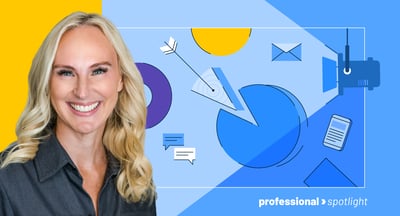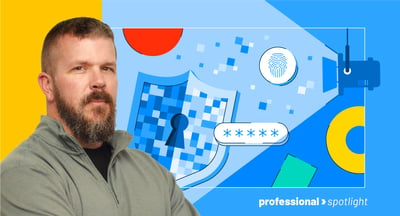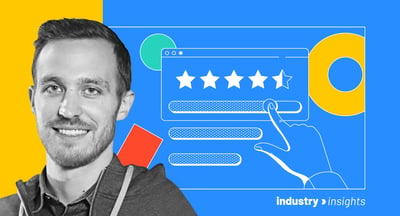April 3, 2024
 by Harshita Tewari / April 3, 2024
by Harshita Tewari / April 3, 2024
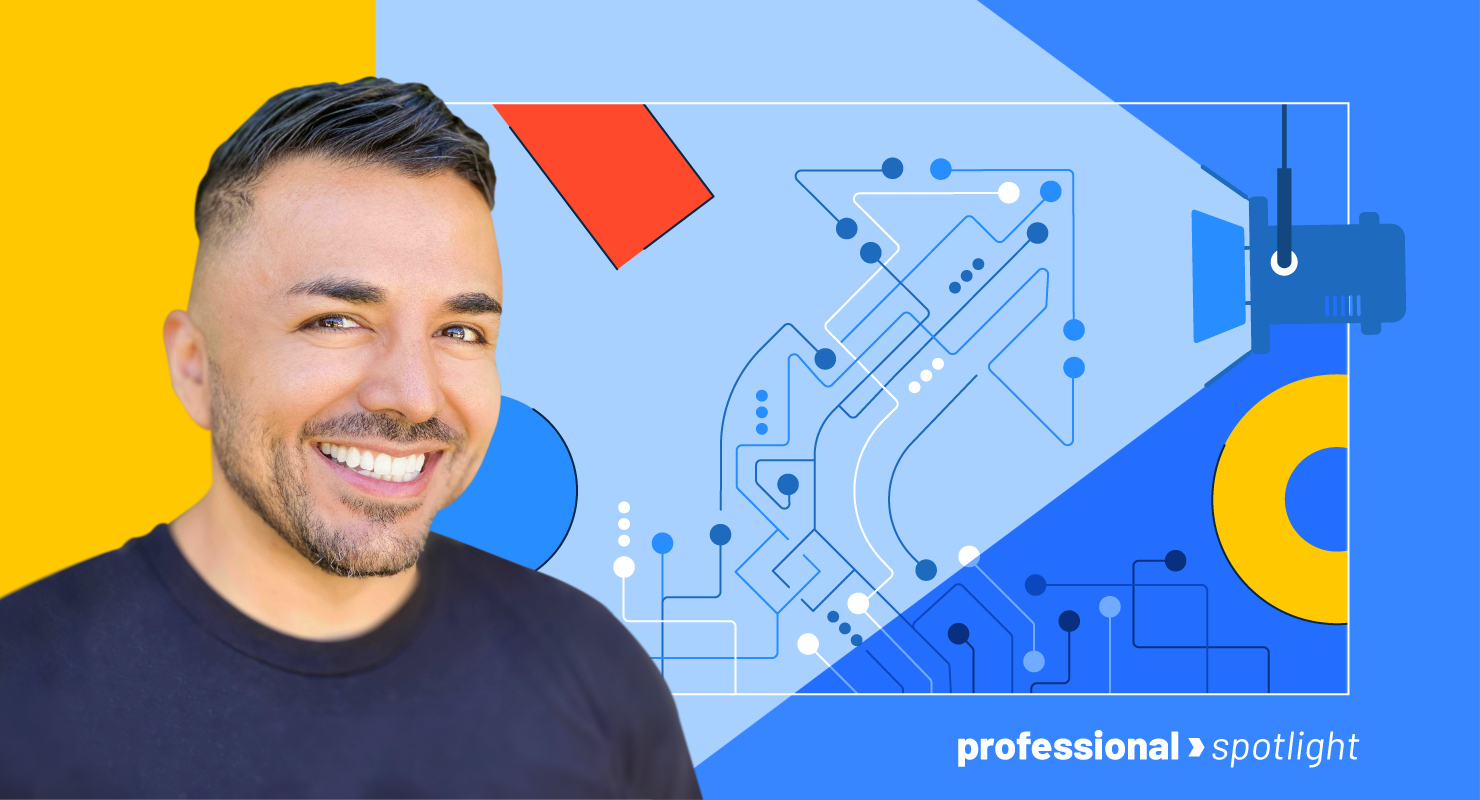
Startups are more than their outward success.
Behind the glossy exterior, every day, the founders are riding an emotional roller coaster as they manifest their ideas and persist through tough times. For most, starting a business is like climbing an enormous mountain – it's not easy to reach the PEAK, and success rates are low.
I recently caught up with Jorge Zamora, the CEO of GoLinks, to discuss the artistry of building a successful tech startup. We talk about how personal challenges spark powerful solutions, how continuous iteration fuels growth, and how a good network becomes a game-changer in the fickle tech world.
This interview is part of G2’s Professional Spotlight series. For more content like this, subscribe to G2 Tea, a newsletter with SaaS-y news and entertainment.
What's your favorite beverage and when do you enjoy it? Iced coffee. It keeps me going. I drink like probably four per day, two in the morning, one after lunch, and then one around five or six.
What was your first job? My initial role was in computer-aided drafting within the civil engineering sector. I primarily drafted plans for projects like railroads, freeways, and piers in Southern California. It was an exciting time for me as CAD technology was just emerging, replacing traditional pen-and-paper methods. It felt like stepping into the future.
What's your favorite software in your current tech stack? I love Google Meet. I don't know why people hate it so much. We're a remote team across the US, and yes, we use emails and Slack, but there's just something special about video chatting with someone. Engaging in a conversation, seeing that smile – it's a different level of connection.
What problems at work make you want to throw your laptop out the window? Sharing long links! But we've fixed that problem with our software.
Harshita Tewari: Let's talk a little about your professional life now. I went through your LinkedIn profile, and I must say I was impressed with your entrepreneurial journey. What initially inspired you to become an entrepreneur? Could you walk us through your journey, from your earliest ventures to your current role as the CEO of GoLinks?
Jorge Zamora: My journey began with an engineer friend. I was a designer with a passion for creating graphics and animations. I believed I had a strong design sense. He, on the other hand, could build any website he desired.
Back then, Facebook and MySpace were just emerging, and we saw a gap in the social media landscape. There was nothing specifically catering to the Hispanic community. This inspired us to create Amigoster, a social network for Hispanics.
Unfortunately, my friend couldn’t continue due to some personal challenges. Despite this setback, I was determined to pursue the idea. I had already designed the entire platform, and I believed in its potential. So, I embarked on a self-learning journey. I purchased a massive book, close to a thousand pages, on building dynamic websites. I went through the book page by page, chapter by chapter.
Armed with my laptop, I began building the platform myself. In no time, I had a functional login page, followed by photo uploading capabilities. This rapid progress fueled my motivation, and I started adding features over the weekend.
It was fascinating to see the platform come alive so quickly. Working from my room over the weekend, all by myself, I was building features, shipping them out, and receiving user feedback, promotions, and sponsors all so quickly. The rapid feedback loop and positive response were incredibly motivating, even though I wasn't financially compensated at that stage.
This experience was a stark contrast to my previous background in civil engineering. In that field, projects involved lengthy planning and approval processes, often taking years to complete. The final product was static and unchangeable. In contrast, software offered a dynamic and iterative environment. I could easily modify buttons, change colors, and constantly improve the product. This sense of fluidity and the feeling of creating something "alive" truly captivated me. This experience ignited my passion for entrepreneurship and set me on the path to where I am today.
That’s really inspiring. There’s another thing in your entrepreneurship journey that’s quite interesting. You have been a founder and founding member of four startups. How do you decide when an idea is worth pursuing? And what made you realize there was a need for GoLinks?
The key, I believe, is to solve a problem you've personally encountered. When something significantly impacts you, you understand the issue deeply and can develop a solution quickly. It's far more effective than researching problems you haven't faced yourself, relying solely on others' experiences and interpretations.
Furthermore, you're more invested in an idea that addresses your own pain points. This personal connection fuels your motivation through the inevitable ups and downs of a startup journey. You persevere because you're deeply affected by the problem you're solving.
In fact, every startup I've launched stemmed from a personal need. For GoLinks, the inspiration came from my experience at Yahoo. They had hundreds of internal tools, but only a handful were truly critical to the company's success. I was surprised that there wasn't a commercially available solution for these essential tools, requiring them to be maintained internally.
Interestingly, when I was recruited by companies like Netflix, Twitter, and Facebook, they all faced the same challenge – a lack of readily available solutions for crucial internal tools. This widespread need sparked my passion for this space. My focus wasn't primarily on building a startup, but rather on creating something people truly needed.
“The most effective way to start a business, I believe, is to address a problem you've personally experienced. When you have that personal experience, you can go from nothing to something extremely fast.”
Jorge Zamora
CEO, GoLinks
That does sound like the best way to start, but how do you get over the fear of starting something new?
Honestly, I don't have a fear of starting. I think people often see the finished product, the successful company with a large team, and forget it all starts with an idea. All you truly need to begin is a laptop, good Wi-Fi, and maybe some coffee.
Early in my career, I attended a lot of hackathons – 24-hour events where you build something from scratch and present it. I remember driving up north from Southern California to participate in hackathons at Google, Facebook, Dropbox, and more. My friend and I won a lot of them.
These experiences taught me a valuable lesson: starting is easy. The real challenge lies in persistence. The hardest part for any entrepreneur is deciding whether to keep going when things get tough. That's the true hurdle in the startup world.
I want to switch gears here and talk a little bit about AI because it’s all the hype right now. You recently launched two new products using generative AI. What was the development process like? How has your team adapted to the generative AI usage?
The development process with AI is incredibly rapid, evolving constantly. It's crucial to stay updated on trends, access the latest tools quickly, and adapt accordingly.
As a Y Combinator-backed startup, we were fortunate to benefit from their network. Our former president at YC was the founder of OpenAI, Sam Altman. This gave Y Combinator startups early access, allowing us to experiment before anyone else. We immediately organized a hackathon, providing everyone with a quick interface to access the tool and explore ideas freely. Over 48 hours, amazing demos emerged, and within two days, we launched our first GenAI experience on GoLinks.
Our philosophy is to empower people with the latest technology and provide them with the opportunity to experiment and launch, launch, launch. We've continued this approach with new models like the multi-modal option. We constantly ask ourselves, "What new experience can we build with this? How can we take advantage of this technology?"
This rapid iteration has led to genAI integration across all our products, including GoProfiles, the first genAI product for people data, and GoSearch, the first multi-modal enterprise product available.
You mentioned the Y Combinator network. Were there any specific mentors or role models who have shaped your entrepreneurial journey and leadership approach?
It's definitely changed over time. Initially, as a solopreneur building things myself, I couldn't help but admire successful figures at the time. Mark Zuckerberg, for example, was creating Facebook in his dorm – just like me, building my own project on weekends. There's even a movie about him, The Social Network. Watching it gets me fired up and ready to take action. It's a motivational film, believe it or not.
Now, it's the incredible mentorship network at YC. Talking to the Head of Growth at Airbnb, founders of top companies, people willing to jump on a call and share their wisdom. That's invaluable. Thanks to them, we were able to transform from a solopreneur venture to a well-funded VC-backed company. We couldn't have gotten here without their insights, guidance, and mentorship. I'm forever grateful for their role in shaping both our company's trajectory and my own leadership approach.
Would you say networking is one of the most critical aspects of the entrepreneurial journey?
Absolutely! Building a strong network is invaluable. Having access to a network like YC, with its extensive base of experienced founders from top companies, has been instrumental in our journey. They've been incredibly supportive and willing to share their knowledge, which has been really helpful.
That’s amazing! I want to talk a bit about how you measure success at GoLinks beyond market share and revenue. What matters most to you and how do you ensure the company meets its goals?
I wouldn't say it's about strictly measuring success; it's more about the journey itself. While traditional metrics are important, I believe success at a startup transcends mere numbers. Startups are full of ups and downs and you get punched in the gut and punched in the eye more than often. Your key personnel leaves, you lose a major client, or even face bugs that crash the entire system.
My approach is to celebrate every win. Launched a new feature? Celebrate! Landed a great customer? Celebrate! Had a productive call? Celebrate! Got some good press out? Celebrate everything! These moments, big or small, help maintain balance.
To ensure long-term success, I emphasize the importance of rapid iteration and delivery. As long as you're constantly iterating and refining the problem and solution, you're making your product better, creating a happier user base, and expanding your reach.
With persistence and those celebrations in between, your mental state is going to be strong, your company is going to be strong, and the relationship with your team is going to be strong. And that's what I try to optimize for.
“Stagnation is a big problem in the startup world, and the greatest threat to a startup is a founder giving up.”
Jorge Zamora
CEO, GoLinks
I believe constant improvement and iteration is essential for any work you do, be it building a startup or running a project in the startup.
Getting a little insight into your personal life here. Your products seem designed to help people be productive anytime, anywhere. What personal productivity hacks do you use?
Well, it might sound strange, but I swear by walking meetings! People tease me about it, but I get in an hour and a half of walking each day during meetings. No desk, no treadmill – just earbuds, phone, and Google Meet. Thank you, Google Meet!
The funny thing is, I get laser-focused that way. At my desk, I'm bombarded. Three screens, emails pinging, alerts popping up. But walking with someone, all I hear is the birds and their voice. It creates a deep focus on the conversation, sparking better ideas and problem-solving.
Plus, it's exercise. One and a half hours is about 10,000 steps. Taking care of yourself is key. Stress is real, so you need to manage it. How? Exercise, strong social networks, and sharing the load with friends and family. Being healthy in all aspects is crucial for peak performance.
“Startups are like marathons, and you have to take care of yourself physically, mentally, and emotionally to be able to do your best.”
Jorge Zamora
CEO, GoLinks
I love that quote! As a parting note, what advice would you offer to aspiring entrepreneurs, particularly those in tech looking to turn an idea into a successful startup?
It all boils down to this: start now. Don't wait for the "perfect" time. Jump in and embrace the possibility of failure.
Think of your company idea as a project. Begin with something manageable, like a weekend or evening side hustle. Dedicate a few hours each week to build a basic prototype. This hands-on approach will give you a clearer picture of your idea's potential and guide your future decisions.
The key is to get started. But remember, starting is just the first step. Perseverance is crucial. Don't let setbacks discourage you.
The number one reason startups fail is the founder giving up. The secret weapon against giving up: surround yourself with a strong support system and prioritize your mental health. Make sure you're exercising, getting enough sleep, and eating nutritious meals. Ditch the all-day burger-and-fries routine fueled by energy drinks.
You are the engine of your startup's success. By taking care of yourself, you're putting your venture in the best possible position to thrive. Here's the final piece of advice: build something you're passionate about. A deep understanding of the problem you're solving will fuel your drive. When you've personally experienced the pain point you're addressing, no obstacle will seem impossible. That passion will keep you going when the road gets tough.
Follow Jorge Zamora on LinkedIn to learn more about the latest technologies and leadership insights.
Harshita is a Content Marketing Specialist at G2. She holds a Master’s degree in Biotechnology and has worked in the sales and marketing sector for food tech and travel startups. Currently, she specializes in writing content for the ERP persona, covering topics like energy management, IP management, process ERP, and vendor management. In her free time, she can be found snuggled up with her pets, writing poetry, or in the middle of a Netflix binge.
It’s time to tell the market, “It’s not you. It’s me.” Like, for real.
 by Alexandra Vazquez
by Alexandra Vazquez
In a digital world, where every click, swipe, and keystroke opens doors to endless...
 by Alexandra Vazquez
by Alexandra Vazquez
It's no secret that customer reviews are an essential part of the purchasing process for...
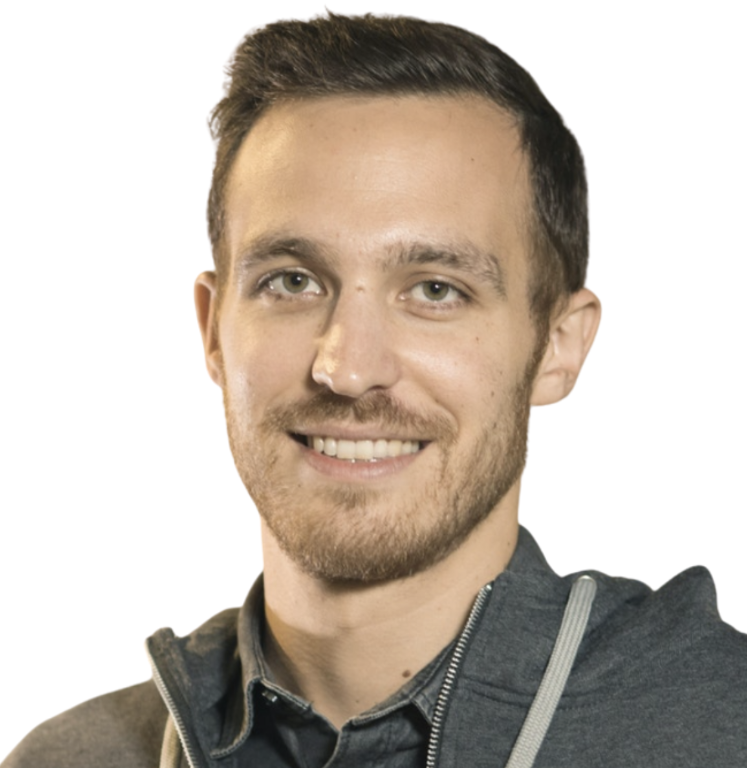 by Joe Kevens
by Joe Kevens
It’s time to tell the market, “It’s not you. It’s me.” Like, for real.
 by Alexandra Vazquez
by Alexandra Vazquez
In a digital world, where every click, swipe, and keystroke opens doors to endless...
 by Alexandra Vazquez
by Alexandra Vazquez
